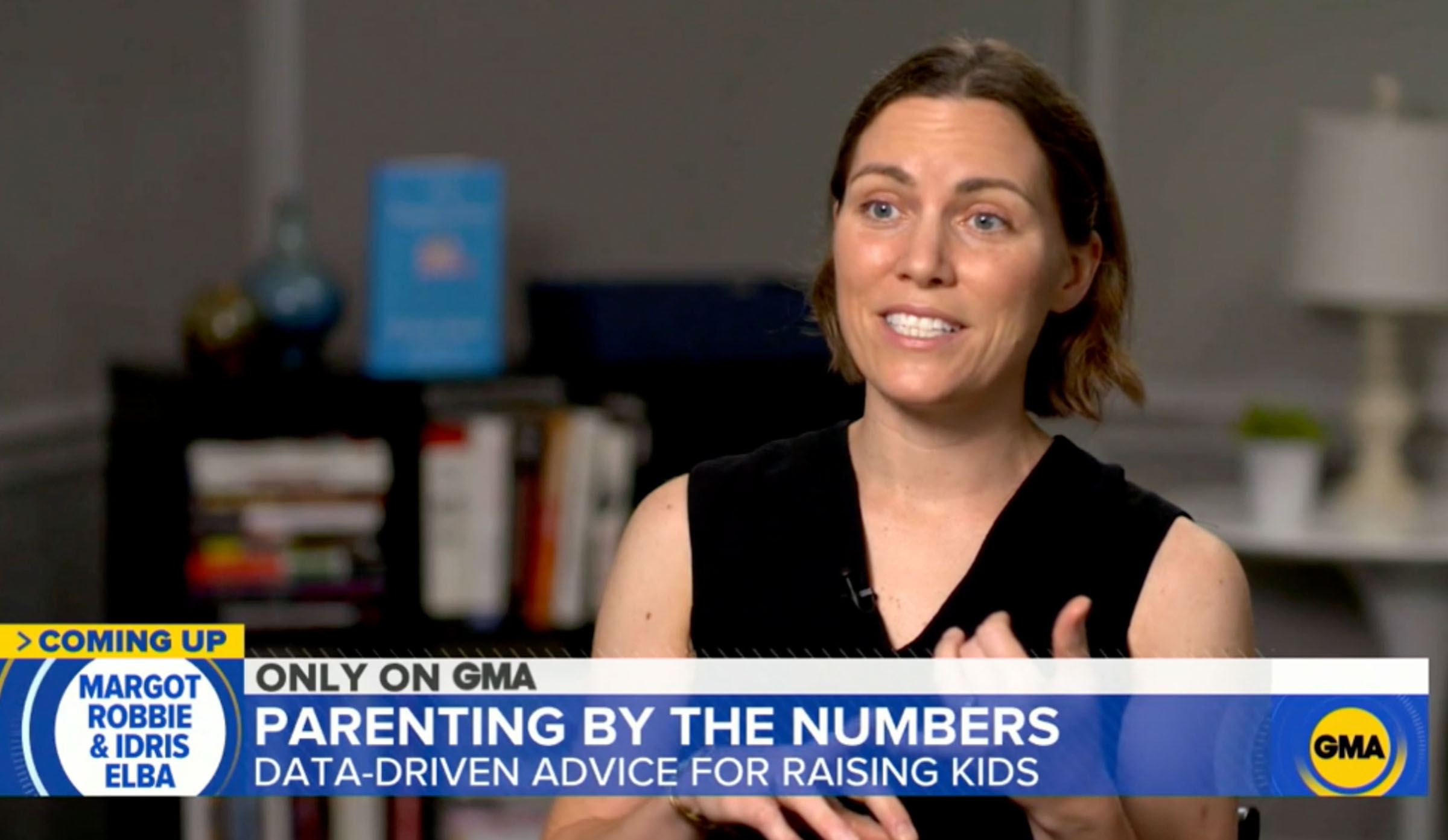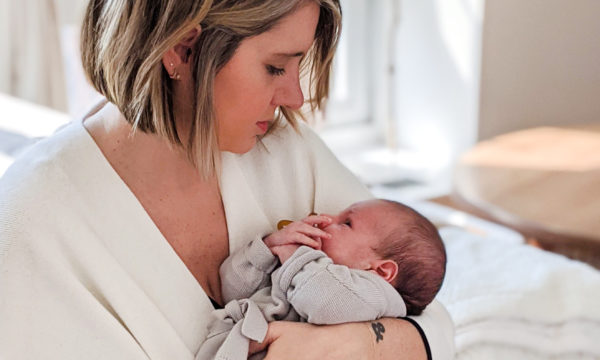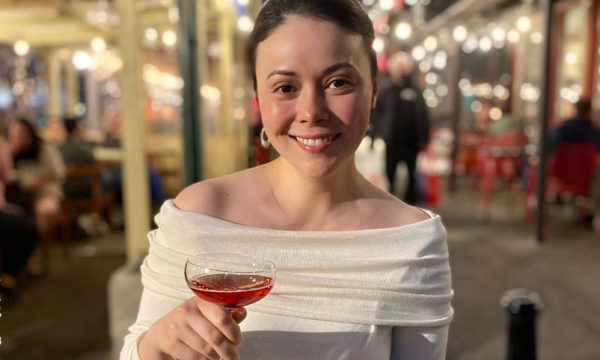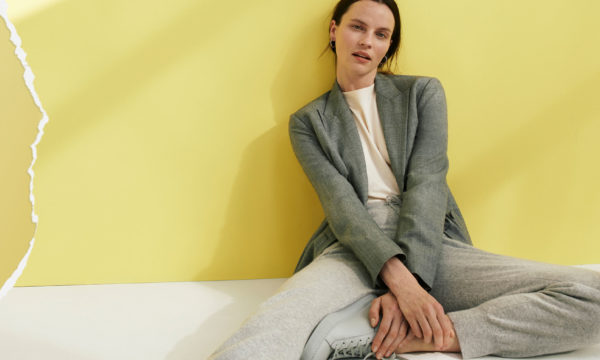
Shop This Look
Emily Oster Helps Parents Rewrite the Rules on Parenting—Including What’s Best for Kids During the Pandemic
How the economist and best-selling author’s parenting style adapted to the pandemic, and why she believes we shouldn’t leave the decision of whether or not to get vaccinated up to personal choice.
In her third book on parenting, economist and best-selling author Emily Oster aims to help parents of children ages 5-12 use research and values to inform the decisions that make up their daily lives. But The Family Firm is a slight departure from her earlier work, Expecting Better and Crib Sheet, in that it deals not only with the choices parents must make about things like the best age to enroll a child in school, but also with how to incorporate their children’s opinions, desires, and input into the entire decision-making process. As the title suggests, The Family Firm proposes organizing your household in such a way that everyone feels like a valued stakeholder in the happiness and success of the family unit.
Want more M Dash?
Sign up for our weekly newsletter.
Thank you!
“In some ways, The Family Firm is about data,” Emily explains over Zoom. “But at its core, it’s really about how to be intentional and deliberate, so we can ensure that we’re doing the things that we love and having the life structure that we want.”
Of course, the pandemic jumbled up and stripped many families of any semblance of normalcy, nevermind routines and structure. Even for Emily, who has written three books on data-driven, deliberate parenting, the last eighteen months have been one long lesson in letting go.

Below, Emily shares more about The Family Firm, how her parenting style adapted during the pandemic (including the creative way she gets her kids to eat vegetables), and why she believes we shouldn’t leave the decision of whether or not to get vaccinated up to personal choice—especially if we want to keep our kids healthy and happy.
[This interview has been edited and condensed for clarity.]
On Prioritizing Values in the Decision-Making Process...
The key takeaway from The Family Firm is the need to be deliberate about determining the pieces of your life that are most valuable to you and not letting this era [of parenting] overwhelm us. This book asks people to sit down and answer the question, ‘What’s one thing you really want to do every day?’ And then, I hope to help them understand that it’s okay that the reason that you want to do that one thing is just because it makes you happy.
One of the things my family realized pre-pandemic—and then I think even more so during—is that it is really valuable to us to have at least one weekend day where nothing is scheduled in advance. A day where we basically have the flexibility to decide to go on a hike or to the beach (we really like to do stuff outside). We maintain the free-day policy not because we’re trying to optimize the kids in some data-specific way, but just because it’s something we really like, and therefore it’s important. Of course, that influences other things that we don’t do. For example, the kids don’t do organized sports, because almost all sports involve practices and games on the weekend.
Speaking of simplifying the decision-making process, that’s something I love about M.M. [Emily is a longtime customer]. I like M.M. because all of the clothes just work for me—when I put on M.M. clothes, I know I will feel good. I don’t have to think that much about what I’m wearing, and that’s key. I went on Good Morning America recently, and I wore this black staccato M.M. jumpsuit, which I love. I felt so good, because it’s a great jumpsuit and just one step beyond my basic instinct to just wear the black Oshima pants and different jewel-tone tops.
How the Pandemic Changed the Way She Parents...
The pandemic forced me to recognize the things I did not have control over and to realize that I cannot control everything. As a person who likes structure, there were moments where I was like, ‘Okay, I have to give up on this a little bit.’ And that’s probably healthy. We spent so much more time with our kids, and I think I have tried to listen to them more, particularly my older kid, and what would serve her. That was a big realization for me. I think the pandemic just coincided with a time when my kid was old enough to start being a little bit more of her own person. And that changed how much power I gave her in the decision-making process around the stuff she was doing.
"As a person who likes structure, there were moments where I was like, ‘Okay, I have to give up on this a little bit.’ And that's probably healthy."
Like most families, we spent a lot of the pandemic at home. And when I think back to March 2020, there was a sense of, ‘I can only go grocery shopping a very small number of times, because any moment I step in the grocery store, I might get Covid immediately.’ So it became important to generate more structures around food, and we were more deliberate about not wasting food and tried to use everything we had.
We started getting these farm deliveries so I wouldn’t have to go to Whole Foods so much. The farm carrots always come with the tops, which I didn’t want to throw away. But it turns out there’s only one thing you can do with carrot tops, which is make pesto with them—that’s it. Otherwise, the tops are not that useful. So we started making this pesto dip that I shared the recipe for on a recent episode of Food52’s podcast, Play Me a Recipe. As I write in The Family Firm, dips are a great way to get your kids to eat more vegetables, so we would have vegetables and dip before dinner, and then at dinner, we don’t worry that much about the fact that they don’t eat any vegetables.
Hear How Emily Oster Rewrites the Rules about Vegetables on Food52’s Play Me a Recipe Podcast
On the Pandemic’s Impact on Kids and Our Shared Responsibility to Get Vaccinated...
Kids miss their friends, and kids are supposed to be interacting with other kids—that’s actually really important for development. I think part of what happened over the last year was that we prioritized preventing the virus from spreading over everything else, which makes sense. But there has probably not been enough attention given to some of the downsides for kids when it comes to isolation and remote school—not just the learning losses, which are easy to quantify and easy to talk about, but some of these more socioemotional issues. So I’m hoping that we will start to see some recovery of that over the next year as kids go back to school. Even with the current variant, the risk of serious illness to kids remains very low; the vast majority of kids who get Covid will have mild or asymptomatic infections or are not made seriously ill. And so I think for vaccinated parents, if you don’t live in a household with an immunocompromised person, if it’s basically healthy kids and vaccinated, healthy parents, there is a pretty strong case toward more social engagement, particularly because it’s valuable for kids.
My books are about choices that are basically private choices where externalities are very limited. Like, when does my kid go to sleep? That’s a fairly private choice. And if you don’t want your kid to sleep a lot of hours, that’s probably not great for your kid, but it’s also not so terrible for everybody else. In contrast, the pandemic is a space where there is a real interaction between private choices and public consequences. Particularly, choosing not to get vaccinated when vaccinations are available is a private choice that has tremendously bad public consequences for other people. I think this is an unfortunate policy space where [vaccine] mandates are the only option. Even if you personally don’t get sick, there are many reasons to get vaccinated.











